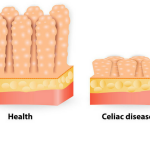CDC Releases Statement on Mystery Lung Infection Linked to E-Cigarette Use
Node Smith, ND
Initial findings from the investigation into serious lung illnesses associated with e-cigarette products point to clinical similarities among those affected. Patients report similar exposures, symptoms and clinical findings and these align with the CDC health advisory released last week. While many of the patients, but not all, reported recent use of THC-containing products, some reported using both THC- and nicotine-containing products. A smaller group reported using nicotine only.
No evidence of infectious diseases identified; lung illnesses likely associated with a chemical exposure
No evidence of infectious diseases has been identified in these patients; therefore, lung illnesses are likely associated with a chemical exposure. However, it is too early to pinpoint a single product or substance common to all cases, according to authors of articles published in the CDC’s Morbidity and Mortality Weekly Report (MMWR) and the New England Journal of Medicine.
“We are committed to finding out what is making people sick,” said Robert R. Redfield, MD, director of the Centers for Disease Control and Prevention. “All available information is being carefully analyzed, and these initial findings are helping us narrow the focus of our investigation and get us closer to the answers needed to save lives.”
CDC, FDA, and state partners are combining information about e-cigarette exposures, results from FDA testing of product samples, and clinical testing results to identify a cause or causes of these illnesses.
“The FDA appreciates the continued collaboration between our federal and state public health partners to get to the bottom of these distressing incidents and gather more information about any products or substances used. We are leaving no stone unturned in following any potential leads and we’re committed to taking appropriate actions as the facts emerge,” said Acting FDA Commissioner Ned Sharpless, M.D. “Our laboratory is working closely with our federal and state partners to identify the products or substances that may be causing the illnesses and have received more than 120 samples from the states so far. The FDA is analyzing these for a broad range of chemicals but no one substance, including Vitamin E acetate, has been identified in all of the samples tested. Importantly, identifying any compounds present in the samples will be one piece of the puzzle but won’t necessarily answer questions about causality, which makes our ongoing work critical.”
Multistate investigation launched August 1, 2019
CDC launched a multistate investigation into the lung illnesses on August 1, 2019, and has worked closely since then with FDA, states and other public health partners, and clinicians to determine the cause. As of today, more than 25 states have reported possible cases of lung illnesses associated with use of e-cigarette products (e.g., devices, liquids, refill pods, and cartridges).
Additional cases of lung illness are being investigated to determine whether they are linked to e-cigarette use and have similar clinical features. This includes looking back for older cases based on CDC’s case definition. States are in the process of classifying possible cases, and this information will be reported next week.
What CDC is doing
CDC has created an incident command structure to respond to these illnesses and is working with FDA and states to investigate whether the illnesses may be linked to specific devices, ingredients, or contaminants in the devices, or substances associated with e-cigarette product use. On August 30, 2019, states were asked to submit data to CDC about lung illnesses associated with e-cigarette product use, as well as information about the types of e-cigarette products used. CDC is currently receiving data from affected states and will share updates as more information becomes available.
What health care providers can do
CDC encourages clinicians to immediately report possible cases of e-cigarette-associated lung disease to their local or state health department for further investigation. If e-cigarette product use is suspected as a possible cause for a patient’s lung disease, a detailed history of the substances used, the sources, and the devices used should be obtained, as outlined in the HAN (Health Alert Network), and efforts should be made to determine if any remaining product, devices, and liquids are available for testing.
What the public can do
While this investigation is ongoing, people should consider not using e-cigarette products. People who do use e-cigarette products should monitor themselves for symptoms (e.g., cough, shortness of breath, chest pain, nausea, vomiting, abdominal pain, fever) and promptly seek medical attention for any health concerns. Regardless of the ongoing investigation, people who use e-cigarette products should not buy these products off the street and should not modify e-cigarette products or add any substances that are not intended by the manufacturer. E-cigarette products should never be used by youth, young adults, pregnant women, or adults who do not currently use tobacco products.
If you are concerned about your health after using an e-cigarette product, contact your health care provider, or you can also call your local poison control center at 1-800-222-1222. Health care providers also can contact their local poison control center.
CDC and FDA encourage the public to submit detailed reports of any unexpected health or product issues related to tobacco or e-cigarette products to the FDA via the online Safety Reporting Portal.
More information about the investigation is available on the CDC website.
 Node Smith, ND, is a naturopathic physician in Humboldt, Saskatchewan and associate editor and continuing education director for NDNR. His mission is serving relationships that support the process of transformation, and that ultimately lead to healthier people, businesses and communities. His primary therapeutic tools include counselling, homeopathy, diet and the use of cold water combined with exercise. Node considers health to be a reflection of the relationships a person or a business has with themselves, with God and with those around them. In order to cure disease and to heal, these relationships must be specifically considered. Node has worked intimately with many groups and organizations within the naturopathic profession, and helped found the non-profit, Association for Naturopathic Revitalization (ANR), which works to promote and facilitate experiential education in vitalism.
Node Smith, ND, is a naturopathic physician in Humboldt, Saskatchewan and associate editor and continuing education director for NDNR. His mission is serving relationships that support the process of transformation, and that ultimately lead to healthier people, businesses and communities. His primary therapeutic tools include counselling, homeopathy, diet and the use of cold water combined with exercise. Node considers health to be a reflection of the relationships a person or a business has with themselves, with God and with those around them. In order to cure disease and to heal, these relationships must be specifically considered. Node has worked intimately with many groups and organizations within the naturopathic profession, and helped found the non-profit, Association for Naturopathic Revitalization (ANR), which works to promote and facilitate experiential education in vitalism.










